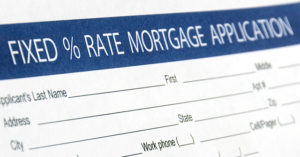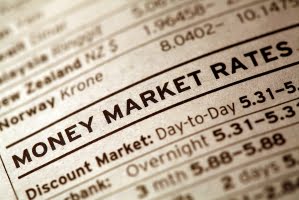Inflation – Rising Prices – Can Make It Difficult To Get Ahead
Inflation occurs when prices are steadily and noticeably on the rise. Out of control inflation can wreak havoc on an economy, and for individuals even moderate inflation can make it challenging to get ahead. The purpose of this article is to provide some concrete, practical strategies regular people can use to combat the effects of inflation.
How Inflation Affects Regular People
One of the positives of inflation is that wages generally rise. Isn’t that great! If only the story stopped there it would be. The problem is that inflation causes costs rise as well. For example, if you rent then each time your lease is up then your rent will noticeably increase, thus eroding the effects of your higher wages. It’s not just rent. Inflation causes the price for gas, groceries, electricity, mobile phone usage, movie tickets, clothing, and all kinds of things regular people need and want to rise as well, making it a struggle for regular people to keep their heads above water.
How To Combat Inflation? – Lock In Your Costs!
What if your income is $100 and your expenses are also $100. Now, if your wages increase to $110 due to inflation but your expenses also go up to $110 then you would just be treading water financially. However, if your wages went up to $110 but your expenses stayed at $100 THEN you would be getting somewhere. One of the keys on how to fight inflation is to lock in your expenses. But how can regular people do that? Here are some strategies on how to combat inflation.
 Strategy #1 – Buy A Home With A Fixed Rate Mortgage
Strategy #1 – Buy A Home With A Fixed Rate Mortgage
Housing is most people’s most significant monthly expense, so it follows that if you can lock in your housing costs then you really put a stake in the ground when we answer the question of how to combat inflation. How does a regular person do that? By buying a home with a fixed-rate mortgage. Doing so locks in your housing costs, and as inflation increases then your purchasing power can actually increase as well (because your wages should continue to rise, yet your housing costs should remain the same).
Strategy #2 – Refinance Your Variable-rate Mortgage To A Fixed-rate Mortgage
As I stated above, on how to combat inflation, it’s not enough to just to own a home, you need to either own it outright (congratulations if you do!) or you need to refinance to a fixed-rate mortgage. Why? Because interest rates tend to rise with inflation, and if every time you get a raise your mortgage resets to a higher amount due to an increase in interest rates then you’ll always struggle to get ahead of the inflation curve.
Strategy #3 – Buy Your Cars Rather Than Lease
Cars are often regular people’s second most expensive monthly cost. So if inflation strikes then you may have a decent car lease today, but when it comes time to renew then the cost to do so will be significantly higher. On the other hand, if you buy your car then you lock in the cost, and the more years you drive it the more effectively you’ll battle inflation. Read more: Leasing vs buying a car pros & cons.
Strategy #4 – Have Some Of Your Financial Reserves In A Money Market Account
The stock market struggles to do well during periods of inflation because borrowing costs are high for businesses (due to high interest rates). Bonds do even worse, because as interest rates increase they take a hit in value. So what can you use for a financial reserve? A money market account is a good option because the interest it earns will rise with inflation, and money market accounts also have the advantages of being liquid and relatively safe. If you want even more safety (at the cost of a lower interest rate) then put your money in an FDIC-backed savings account instead.
Strategy #5 – Avoid Variable-rate (Or Floating) Consumer Debt To The Extent Possible
Again, when inflation rises it takes interest rates along with it. So if you have a substantial amount of consumer debt then it increases your exposure to the negative effects of inflation. Credit card debt is one obvious example. However, a less obvious example is a home equity line of credit with a variable interest rate. If you’re caught with a high balance (through financing major home improvements or college tuition, for example) then try and lock in your rate if at all possible (check out borrowing against your 401k plan as an alternative).
An Inflationary Economy Unmasks Poor Financial Choices
The strategies above generally work well during most economic cycles, so what’s the big deal? It’s important to keep in mind that a good (or even a stable) economy can mask less than ideal choices. For example, if you got a variable-rate mortgage while interest rates are flat or declining you would notice little or no difference between your situation and someone who had a fixed rate. On the other hand if inflation took off then it would take your monthly mortgage payment with it, and that could cause you to feel a strain on your finances in a very real way.
In summary, inflation has serious and far-ranging effects on both individuals and the broader economy. While the strategies above may at first blush seem general and applicable to most any economy, they are particular well suited to deal with an inflationary environment. Thus by taking steps on how to fight inflation you can not only weather it well, but you make it work for you.


Pingback: Retire Better With A Dividend Growth Investing Strategy - Debt Free To Early Retirement
Pingback: Standard Deviation as a Measure of Risk for Stocks Explained - Debt Free To Early Retirement
Pingback: Investment Savings Account: Are They Worth It? - Easy Ways To Make Money Online